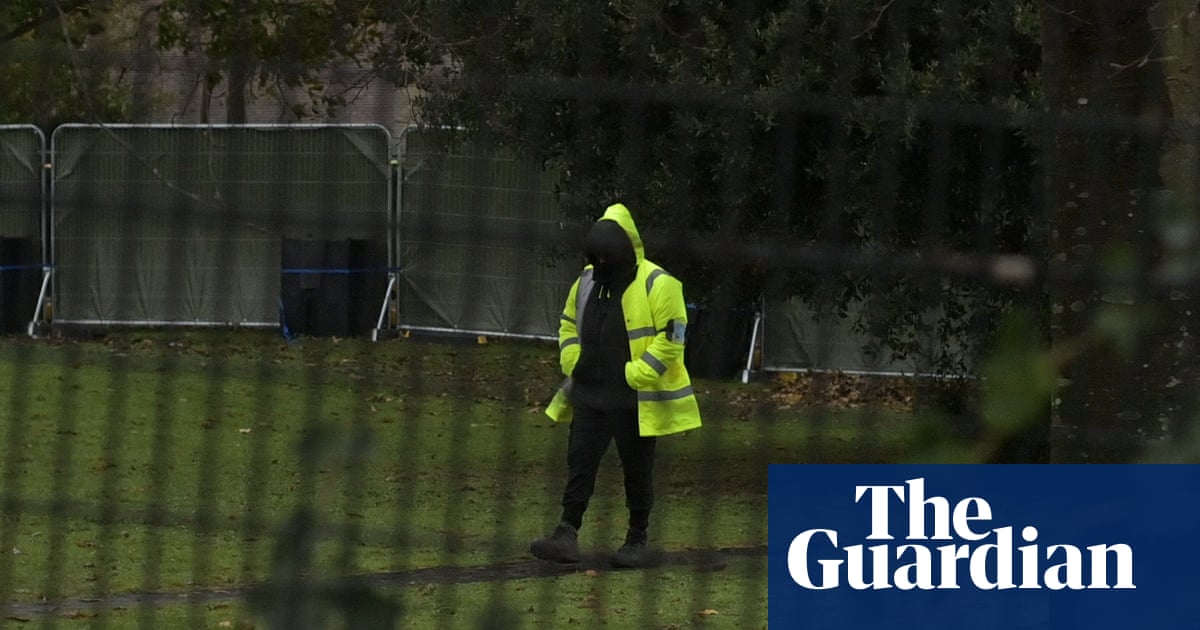
Conditions for small boat arrivals at the Manston reception centre in Kent have sparked international concern and triggered a “rapid reaction” visit from European torture monitors in the last few days.
A seven-strong delegation from the Council of Europe’s Prevention of Torture and Inhuman or Degrading Treatment or Punishment Committee carried out a the visit to Manston from 25-28 November due to concerns over conditions there.
They have presented their preliminary findings to the immigration minister, Robert Jenrick, and to Donald Smith, clandestine channel command director of operations. A Council of Europe spokesperson said: “Visits in such circumstances are relatively rare.”
Manston, a Ministry of Defence site in Ramsgate, has been beset by series of scandals, including a diphtheria outbreak, drug use by guards on the site and asylum seekers being removed from the site and dumped in central London.
Manston was initially intended to hold a maximum of 1,600 people, but at one point accommodated 4,000, with many staying considerably longer than the 24-hour legal time limit.
Manston was emptied last week, but is thought to be operational again after 884 people arrived on 17 boats on Tuesday.
The Guardian understands that during the week when Manston was empty a deep clean was undertaken, new flooring has been installed in marquees and mattresses have been brought to the site.
The Home Office has faced criticism from inspectors including HMIP and the Independent Chief Inspector of Borders and Immigration, along with parliamentarians. NGOs have called for an independent investigation to examine everything that has gone wrong at Manston.
To add to the Home Office’s woes, the chair of the Independent Monitoring Boards, Anne Owers, has written to the chairs of four parliamentary select committees, including the home affairs select committee, outlining “deep concerns” over the “squalid” conditions at Manston. In her letter, Owers states that the Kent Coast Independent Monitoring Board have made monitoring visits to Manston throughout October and November.
Owers said: “The IMB has witnessed a worrying and severe decline in the conditions for those held at Manston. Among individuals spoken to by IMB there was a general lack of information provided to them about the length of their stay at Manston, how their claim would be processed and when transfers would happen.”
Concerns include:
Safeguarding issues around people sleeping close together who don’t know each other.
Blankets being used to block wind and rain from coming into tents.
Contents of portaloos overflowing during a rainy period and seeping into tents.
Children wearing inadequate clothing.
Blankets being stolen.
People sleeping on flattened cardboard boxes.
Overcrowding and sharing of blankets, raising serious concerns for the cross-contamination of diseases.
IMB has shared updates about its concerns with Home Office officials and asked that nobody remain in Manston for more than 24 hours, that conditions meet basic standards and that cleanliness and hygiene on the site are improved.
An article in the British Medical Journal about the diphtheria outbreak at Manston reported that the Association of Directors of Public Health said offers of assistance from public health officials were declined by the Home Office. Jim McManus, the president of the Association of Directors of Public Health, said there had been no response from the Home Office to its offer of help.
“The current situation could and should have been prevented though joint working, and it is entirely arguable that the lack of information, coordination and engagement from the Home Office has made the situation far worse than it could have been,” said McManus.
A Home Office spokesperson said: “We take both the welfare of those in our care and our wider public health responsibilities extremely seriously. We work closely with the NHS and UKHSA to support individuals affected by infection and limit transmission, as well as ensure information is shared in a timely way and that everyone leaving facilities such as Manston is given access to appropriate treatment.
“We have robust contingency plans to deal with health issues such as communicable diseases. The Council of Europe’s request for a visit to Manston was granted by the Home Office.”












